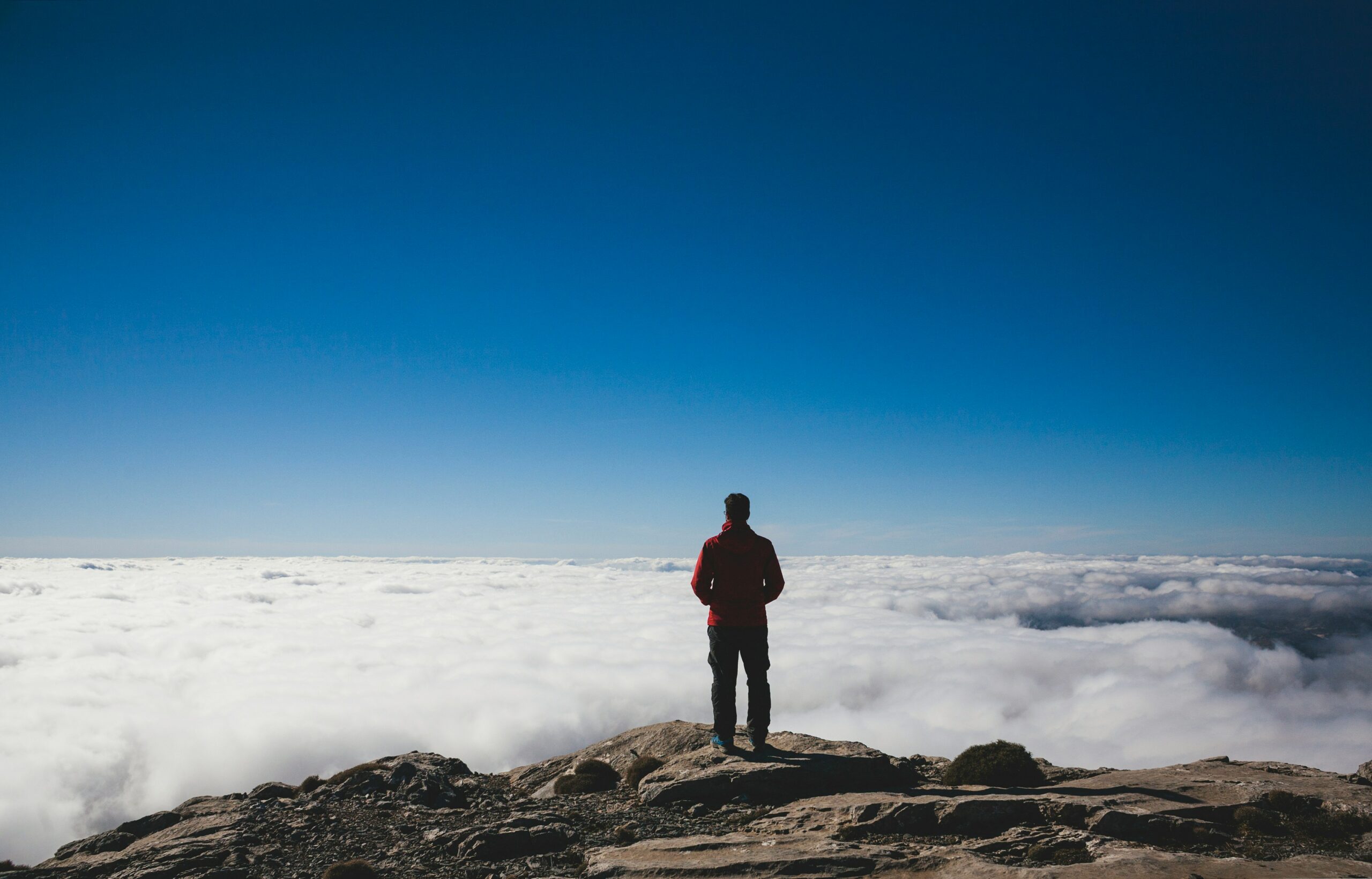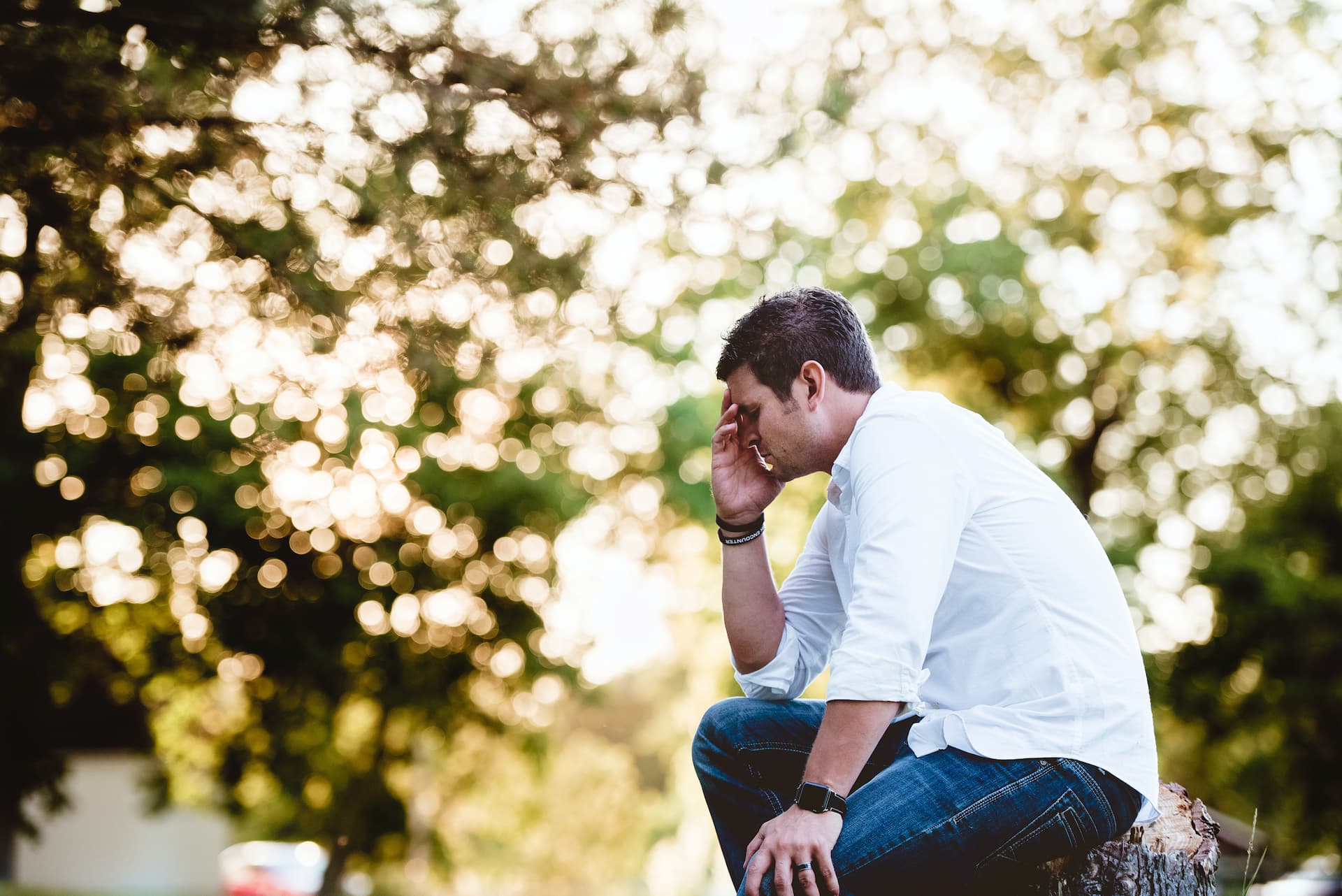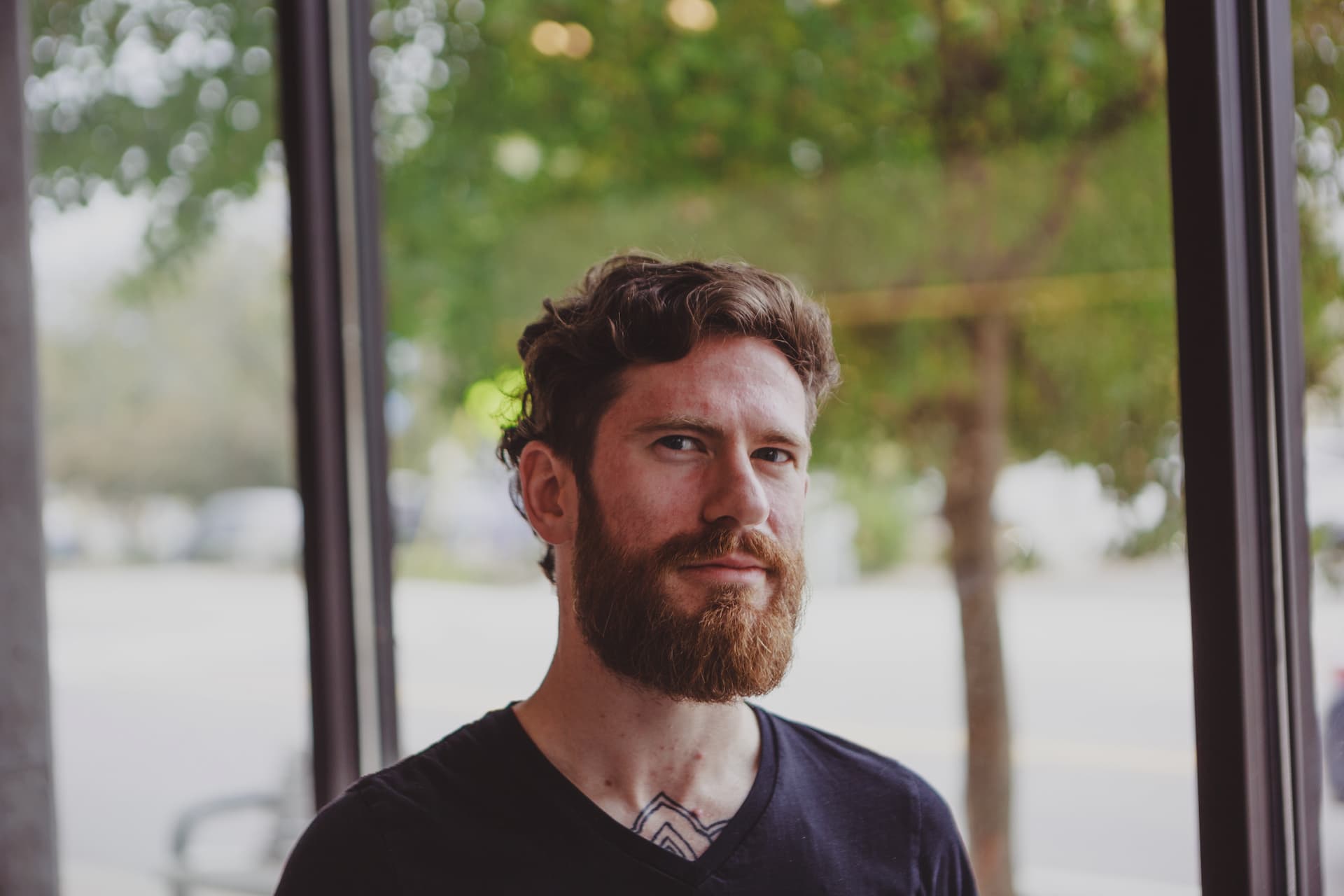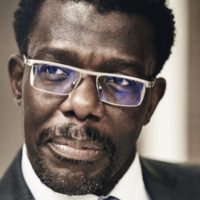Nic celebrates 18 months of sobriety after completing Nightingale’s 28-day addiction treatment programme and secondary treatment at Start2Stop in London
We would like to extend a heartfelt congratulations to Nic, who celebrated 18 months of sobriety, after completing the 28-day addiction rehabilitation programme at Nightingale Hospital and secondary treatment at Start2Stop.
In honour of Addiction Awareness Week, Nic has offered to share his story to offer hope and support to anyone who may be struggling.
Can you share a bit about your experience before seeking treatment? How did you come to the decision to seek treatment at Nightingale?
I was married, had three adult kids, ran my own business, and probably around 10 years after the kids left home, I broke.
Basically, I was bored in my marriage, and I started playing around. I got introduced to crystal meth, which I didn’t use very often, but it was quite fun. It’s a terrible drug, because once you’re on it, it’s so addictive. That’s the only drug I really used. Then COVID hit, and it was a killer for me because I was living and working at home, didn’t go out to see clients, and only left the house to visit my parents and my mother-in-law. My addiction worsened during that time.
Before all this, we had a great life. We used to go on holidays, and the kids were always around with their partners. We had a great family life, and everything seemed fine. But I think life became too much for me. From the age of 23, I ran my own business, employed up to 26 people at one point, and nearly went bankrupt. I’ve had a lot of ill health myself, even before the drugs—two life-threatening illnesses—and all these things, I just took in stride. I never dealt with them. So, when I started playing around, it felt like relief. It was an escape from my marriage, something secret that I enjoyed, but I never thought about the effects of everything I had been through—my health issues, my marriage, my father-in-law’s sudden passing, and then my cousin’s death, just everything. I didn’t dwell on any of it. I just got on with it.
Fast forward to 2022, it was my 58th year, and I was about to turn 59 in May. I remember telling my wife, “I have this feeling I’m not going to make it to 60, and I want to celebrate my 60th birthday a year early.” So, we went to Barbados and had a fabulous holiday. We also celebrated the twins’ birthday with a trip to the Cotswolds, and my wife and I went away for another weekend. I then decided to take a sabbatical for a year. We went away for five weeks to Greece, rented a villa, and had an amazing time. We got along really well, and I didn’t need drugs. I didn’t take any drugs during that time. For five weeks, I was completely clear. The kids joined us, and our best friend came along too. We had a fabulous time.
But when we came back, the pull of the drugs and my old life returned to what it was before. I started taking them again. Then, on July 10, I decided I was going to stop. Instead of admitting to my doctor that I had a problem, I thought I could do it on my own. I did visit my GP, and I showed her my arms where I used to inject. She said, “Oh, your arms are infected. Here are some antibiotics.” I was shocked that the doctor didn’t recognise the issue. I took the antibiotics and stopped using drugs for 10 days before an intervention happened. My wife walked out on our wedding anniversary and said she was going to stay with friends because I was having a psychotic episode. She told me that she had fallen out of love with me, that she would care for me, but didn’t want to be married anymore and wanted a divorce.
My kids brought me into Nightingale, where I stayed for a month. That month was amazing and really helped me. There was a group of six of us, and we got on really well. Every night, we played games and had a great time. There was also art therapy, and everything seemed to fall into place. Then my kids decided to send me to a recovery centre overseas for secondary care but it wasn’t what I thought it would be.
I called my son to say I couldn’t take it anymore. We had a massive argument, and my kids fell out with me. My son told me to stay in a hotel for two weeks and that we’d talk about me going back afterwards. I stayed in the hotel on my own, and for the first time in my life, I was truly alone. I went from living with my parents as a single person to marrying at 23. I’d never been on my own before, but I really enjoyed it. I walked, ate well, and took a few trips. I relapsed twice because I got involved with a wealthy, party-loving crowd. Every time we went to a party, there were drugs. I realised it was ridiculous and couldn’t keep doing it, so I left everything behind and came back to the UK in November.
On Christmas Eve, I relapsed badly, and Christmas Day was horrific. On Boxing Day, I called my GP and asked if she could help me go back to rehab. She gave me the names of two places, leaving me to make my own decision. I booked myself into Start2Stop and was there for two months. I attended the morning sessions and also the evening sessions on Tuesdays and Thursdays, plus Saturday mornings. After those two months, I needed to live my life and knew I couldn’t stay in rehab forever.
So, I found a place to rent. All I had were my clothes and furniture, and I felt like I couldn’t go on. On May 6, I tried to take my own life. Fortunately, it didn’t happen. But since then, which was 546 days ago, I’ve been clear of everything. It’s incredible.
I’m clear of everything now, and I’ve had to rebuild my life from scratch. My kids are starting to speak to me more. I see them about every two months. My daughter had a baby while I was overseas, and I didn’t really get to see her, but I’ve seen her about seven times now. It’s lovely when I see them, and the family is slowly coming back together. My son, who had brain cancer, unfortunately relapsed a year ago, and the cancer spread to his brain and spine. But he’s clear again now, and he has a partner. She found out she was pregnant last August, and they’ve just had a beautiful baby. My daughter is now expecting twins. I’ve built my life back up. I go to AA meetings and am the co-secretary at a nearby meeting every other week. I’ve made some great friends there.
I’m clear of drugs now, and I never want to go back to that. My kids were afraid to tell me that their brother was ill because they thought I might relapse, so they kept it from me for a while. Looking at my life now, though, I realise that if I didn’t relapse when my son was so ill, if I didn’t relapse when I had business issues, and if I didn’t relapse because I was so lonely, I’m not going to relapse now. Getting through those first crises was key—the first big crisis at work, the first big challenge in life. If I can handle those, I can handle the next one.
How did you come to the decision to seek treatment at Nightingale?
My son and daughter got me into the Nightingale. I turned up at Nightingale and was immediately taken to see a psychiatrist with the boys. Then my wife turned up. I hadn’t seen her since she’d walked out, and I completely cracked. I broke down. After that, I was admitted, and a nurse took me up in the lift. I looked back, and I saw them all standing by the door.
I slept through the night, and the next day, I was introduced to my consultant, Dr Nnatu, and the rest of the team. I threw myself into the rehab process here. I really got into the group sessions and counselling. I was also allowed to go out for walks. That month really helped me. It sorted me out in ways I hadn’t expected.
How did you find your treatment? What were some of the most valuable lessons you learned or your biggest takeaways? Were there any particular therapies or approaches that were especially helpful for you?
Not touching drugs—though I did relapse a few times—has been one of my biggest lessons. If I don’t look after myself, no one else will. Relapsing means I’m putting my body through hell, my brain through absolute hell, because the psychotic effects only get worse the more I take. When I relapsed in London, I collapsed in the park, and they took me to the hospital, thinking I was having a heart attack. Afterwards, I went back and stayed with my parents, and that’s when I decided enough was enough. Then, when I was in my new place, I came back from holiday in April. I hadn’t taken anything at all, but I had a massive panic attack and ended up calling 999. An ambulance arrived quickly, and they thought I was having a heart attack again. They did all the procedures and managed to calm me down. They stayed with me for about an hour. Those are experiences I’ve never had on my own.
Doing all of this on my own has taught me, that I have to be strong. I don’t let things break me. I try to compartmentalise when things get too overwhelming. I think of my brain like a filing cabinet with drawers filled with papers. Every now and then, all the drawers open and the papers get thrown into the air, and I can’t find where they land. So when I’m in that state, I go back to compartmentalising, and I tell myself I’m shutting the drawer on my wife, shutting the drawer on my business, and focusing on my hobbies.
I play the piano a lot. I play for St. Mungo’s, a charity for homeless people. I also played in an old age home once. I’m just trying to do things that bring me peace, but I’ve realised now that I can’t keep doing things for others. I have to focus on myself, so I’ve pulled back from helping others as much and started working on myself and my business.
Through all the things the last two years has thrown me, I’ve learned that I can’t change it. I have to accept it.
What advice would you give to someone who is currently struggling?
It’s important to surround yourself with people who are non-judgmental, kind, understanding, and willing to talk. Of course, the steps are really important too. I’ve read the whole book, and I did the steps while I was in rehab. I’ve never officially completed them, though.
When I was at Start2Stop, I wrote everything down—the various steps and insights—and in my journaling, I found that it really helped me understand myself better. So, I always say that going to meetings is essential. Addiction can feel incredibly lonely because you’re trapped in your own head, living in your own world. But there are so many people who have been through it, who have come out the other side. Sharing, talking, and listening are what it’s all about—helping, but not in a way that makes you feel like a “do-gooder” trying to save everyone. It’s just about being there for one another.
How has your life changed since completing treatment? Since being sober in those 546 days?
Five hundred and forty-six days… Yeah, how has my life changed? I’m at peace with everyone, and I’m at peace with myself.
I’m no longer ashamed of what I’ve done, because shame doesn’t help; it just drags you down. I accept my part in the breakdown of the marriage, but I’m not consumed by it anymore. I’ve become a much more peaceful person. I’m happy. I help my neighbours when they need something. I’m always happy to lend a hand. I talk in meetings, I make new friends, I play the piano, I draw, I read. My day just flies by.
It’s a bit lonely, but honestly, my life before was so hectic. I had a crazy social life—out for dinner three times a week, parties, events—just nonstop. It was like living out of a diary, every minute planned. Now, it’s different. I can choose my own time, do what I want, and I’m actually quite happy.
Is there anything else you’d like to share about your experience or journey that hasn’t been covered in these questions?
Taking drugs is done as a means to an end. Once you get into the swing of addiction, it’s the most horrible, dark, and lonely place. You’re in a room, on your own, taking drugs, trying to escape from everything. Drugs become a form of escapism, but eventually, they trap you. And that’s the worst mental state to be in because you can’t see a way out.
I’m lucky that I had an intervention from my children. When you’re in addiction, you don’t admit it. I couldn’t even tell my doctor what I was going through, even when I showed her my arms. I was ashamed and embarrassed. I didn’t even fully admit to myself that I was an addict. When I tried to stop, I thought I could do it on my own. But I didn’t realise the impact it would have on my brain. If I could give any advice, it would be to definitely get help. It’s really the only way out.
Addiction treatment at Nightingale Hosptial
Our addiction treatment multidisciplinary team (MDT) consists of leading consultant psychiatrists, nurses and therapists who are all specially trained in addiction. They are supported by clinical psychologists, trauma therapists, counselling psychologists and psychotherapists ensuring that we deliver specialised, evidence-based treatments.
Professional addiction treatment is shown to be the most effective way to tackle addiction and support the individual in long-term recovery.










